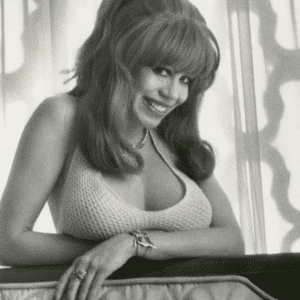Alright, let’s get real—those snack-sized, perfectly smooth baby carrots in your fridge? They seem healthy, right? But lately, people are giving them the side-eye. From chlorine baths to fiber loss, there’s a lot more going on than just a quick crunch. So let’s peel back the truth (pun absolutely intended) and figure out if baby carrots are truly the guilt-free snack they’re made out to be.
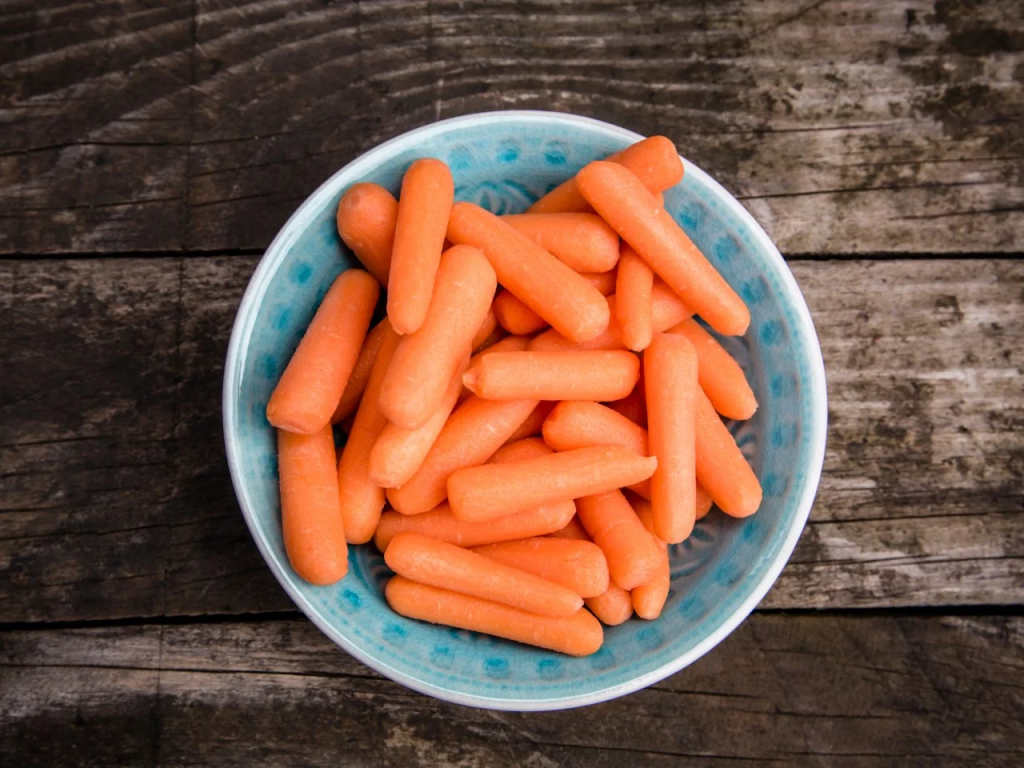
The Processed Origins: Baby Carrots Aren’t Born That Way
Here’s something that catches most people off guard: baby carrots aren’t baby versions of regular carrots. They’re adult carrots… shaved down.
Back in the 1980s, California farmer Mike Yurosek came up with the idea. He was tired of throwing out “ugly” carrots—the crooked, stubby ones supermarkets didn’t want. So he started cutting and peeling them into neat little cylinders. Boom—baby carrots were born. It was smart, economical, and created less food waste. But here’s the twist: that extra processing came with a cost.
Video: The toxic truth about baby carrots & why you should stop eating them
How They’re Made: From Dirt to Perfect Orange Sticks
Making baby carrots isn’t exactly simple. It’s like a full-blown makeover.
First, they sort out the full-size carrots that aren’t pretty enough to sell as-is. Then they cut them down, peel off the outer layer, and buff them into those shiny little tubes you know and love. And yeah—this outer layer they peel off? That’s where a decent chunk of the fiber and nutrients live.
Sure, you’re left with a sweet, tender carrot core. But did the carrot lose its nutritional punch along the way?
Chlorine Wash: The Part Nobody Likes to Talk About
Now here’s where it gets controversial—chlorine.
Yep, after peeling and shaping, baby carrots are dunked in a diluted chlorine solution. This is standard food safety stuff to kill off bacteria, especially since they’re eaten raw. It’s the same kind of chlorine found in tap water, just in small, regulated amounts.
Still, the idea of munching on something that’s been through a chemical bath turns off a lot of people. Even if science says it’s safe, the mental image is enough to make you pause mid-crunch.
Nutrition Breakdown: What’s Lost and What Stays
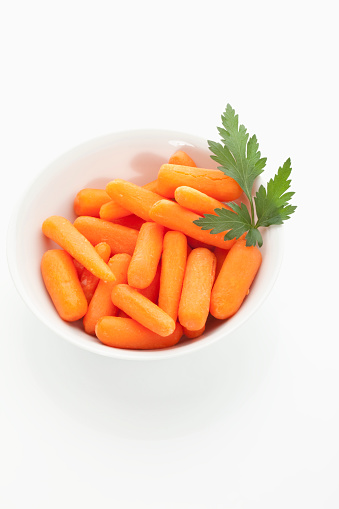
Are baby carrots less healthy than regular ones? Short answer: kind of—but not in a dealbreaker way.
When you remove the skin, you lose some fiber and a bit of vitamin content. But the inside still packs a punch. Baby carrots are loaded with beta-carotene (which your body turns into vitamin A), vitamin K1, potassium, and antioxidants.
In fact, because they’re bite-sized and easy to grab, people are more likely to eat them. And any veggie consumption is better than none, right?
Chemical Exposure: Should You Be Worried?
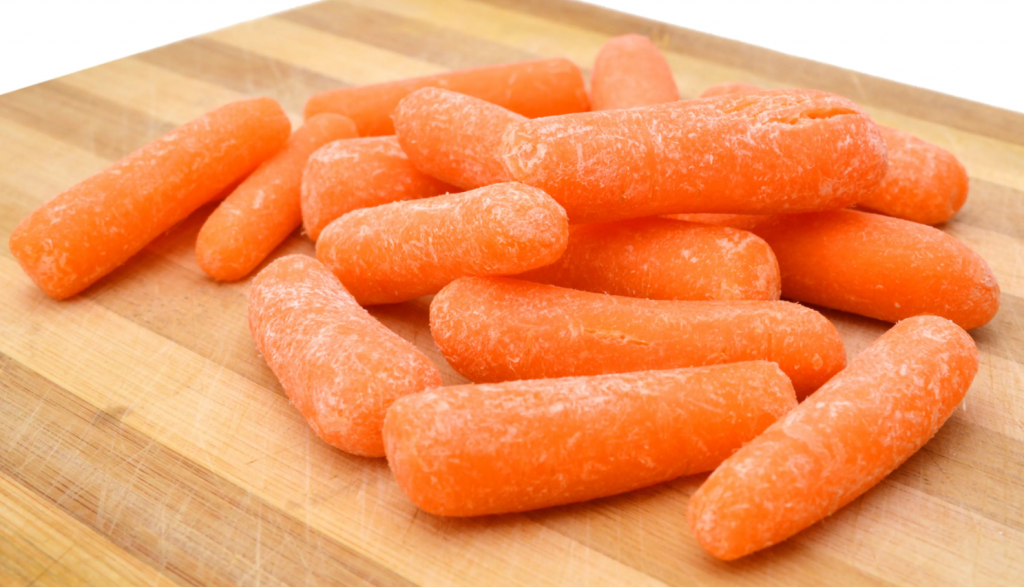
The real fear around baby carrots lies in chemical exposure—not just chlorine, but any residues left over from farming and processing.
That said, there’s no solid proof that eating baby carrots poses real danger. The chlorine gets rinsed off, and the USDA monitors the whole process. Still, if you’re someone who tries to live as close to natural as possible, even tiny chemical residues might make you uneasy.
Here’s a tip: if you’re worried, give them a quick rinse at home. Or better yet, look for organic baby carrots—they’re processed differently.
Environmental Footprint: The Hidden Cost of Convenience
It’s easy to forget that convenience often comes at a cost—and not just to our health.
Baby carrots take more energy and water to produce. All that cutting, peeling, buffing, and packaging means a higher carbon footprint. And let’s not forget the plastic bags they come in. Multiply that by millions of bags, and you’ve got a serious sustainability issue.
Whole carrots? They come with less packaging, less processing, and more planet-friendly vibes.
Marketing vs. Reality: A Healthy Snack or Clever Illusion?
Baby carrots are marketed like they’re the ultimate guilt-free snack—healthy, natural, ready to eat.
But the marketing glosses over how processed they really are. They’re convenient, sure, but they’re not magic. They’re a man-made version of a real veggie, and it’s easy to fall into the trap of thinking convenient = better. Spoiler: it doesn’t.
Why People Are Freaking Out (And Should You Be, Too?)
Video: Think Twice Before Buying Baby Carrots Again
So why all the fuss now?
People are getting more educated and skeptical about what they eat. They want food that’s whole, natural, and chemical-free. Social media has played a big role too—stories go viral fast, even the exaggerated ones. So a video about chlorine-washed carrots might spread way faster than the scientific facts.
It’s not that baby carrots are dangerous. But in a world where processed foods are under constant scrutiny, they’re easy to target.
Whole Carrots vs. Baby Carrots: Which Should You Choose?
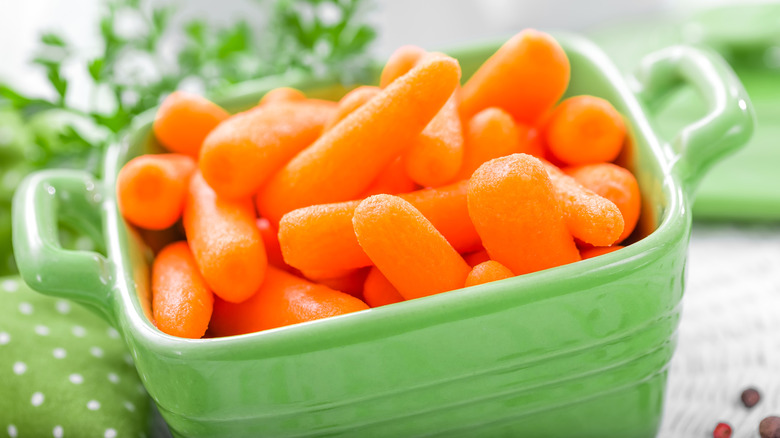
It all comes down to personal priorities.
Want maximum nutrition and minimal processing? Go with whole carrots. Just scrub ’em and slice ‘em yourself—easy.
Need something convenient that’ll keep you from grabbing chips? Baby carrots are still a smart option.
You’re not going to wreck your health by eating baby carrots. But knowing what goes into your food gives you the power to choose what’s right for you.
Final Thoughts: Are Baby Carrots a Snack Trap or a Smart Choice?
Let’s be clear—baby carrots aren’t evil. But they’re also not the pure, untouched-from-the-earth veggies the packaging might make you believe.
Yes, they’re processed. Yes, they’re washed in chlorine. And yes, they lose a little nutritional value in the process. But they’re still better than skipping vegetables altogether or choosing junk food instead.
So if you love baby carrots, keep eating them. Just make the choice with your eyes wide open. Because at the end of the day, the healthiest food is the one you understand—and actually want to eat.
